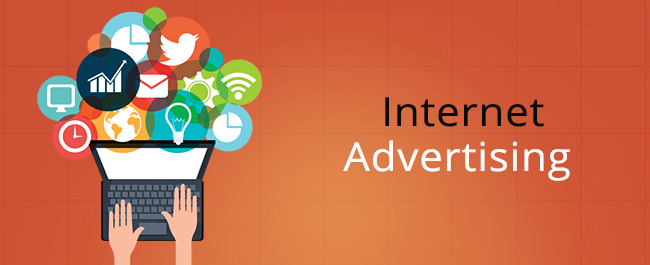General
The Evolution and Impact of Internet Advertising

Introduction
In today’s digital age, the internet has revolutionized the way we communicate, gather information, and conduct business. One of the most significant aspects of this transformation is internet advertising. From banner ads to influencer marketing, online advertising has become an integral part of our online experience. In this blog post, we will explore the evolution and impact of internet advertising, highlighting its benefits, challenges, and future prospects.
The Evolution of Internet Advertising
Internet advertising has come a long way since the early days of the World Wide Web. Let’s take a brief journey through its evolution:
- Banner Ads: In the 1990s, the first forms of internet advertising emerged with the introduction of banner ads. These rectangular graphics appeared on websites and aimed to capture users’ attention and redirect them to advertiser websites.
- Search Engine Advertising: The rise of search engines like Google paved the way for search engine advertising. Pay-per-click (PPC) campaigns enabled businesses to display ads on search engine results pages, targeting specific keywords to reach their desired audience.
- Social Media Advertising: The advent of social media platforms such as Facebook, Instagram, and Twitter gave birth to a new wave of targeted advertising. Advertisers could leverage user data and demographics to deliver highly personalized ads to their target audience.
- Video Advertising: With the exponential growth of video content consumption, platforms like YouTube and streaming services opened up new avenues for video advertising. Pre-roll ads, mid-roll ads, and sponsored content became popular strategies for reaching engaged audiences.
- Native Advertising: Native advertising seamlessly integrates promotional content within the context of the user experience. These ads mimic the format and style of the platform on which they appear, making them less intrusive and more engaging for users.
Benefits of Internet Advertising
Internet advertising offers numerous advantages for businesses, advertisers, and consumers alike:
- Targeted Reach: Online advertising enables precise targeting based on demographics, interests, and browsing behavior. This precision ensures that advertisements reach the right audience, increasing the likelihood of conversions.
- Cost-Effectiveness: Compared to traditional advertising methods, internet advertising can be more cost-effective, especially for small businesses with limited marketing budgets. Platforms like social media and search engines offer flexible pricing models, allowing advertisers to optimize their spending.
- Measurability and Analytics: Internet advertising provides detailed analytics and performance metrics that allow advertisers to measure the effectiveness of their campaigns accurately. This data-driven approach enables businesses to make data-backed decisions, optimize their strategies, and achieve higher returns on investment (ROI).
- Interactivity and Engagement: Interactive ad formats such as quizzes, surveys, and gamified experiences encourage user engagement, making the advertising experience more enjoyable and memorable for consumers.Challenges and Future Prospects
Despite its many benefits, internet advertising also faces certain challenges:
- Ad Blockers: The rise of ad blockers poses a significant challenge to internet advertising. As users increasingly adopt ad-blocking software, advertisers need to find creative ways to deliver ads without disrupting the user experience or resorting to intrusive methods.
- Privacy Concerns: The collection and use of user data for targeted advertising have raised privacy concerns. As regulations like the General Data Protection Regulation (GDPR) and California Consumer Privacy Act (CCPA) evolve, advertisers must prioritize user privacy and obtain consent to collect and use personal data.
- Ad Fatigue: Bombarding users with excessive ads can lead to ad fatigue, diminishing their effectiveness. Advertisers need to strike a balance between reaching their target audience and respecting their preferences to maintain engagement and avoid negative perceptions.
Looking ahead, the future of internet advertising is promising:
- Personalization and AI: Advances in artificial intelligence (AI) and machine learning (ML) will drive further personalization in internet advertising. Advertisers will be able to deliver hyper-relevant and contextual ads, enhancing user experiences and increasing conversion rates.
- Augmented Reality (AR) and Virtual Reality (VR): AR and VR technologies hold immense potential for immersive advertising experiences. Advertisers can create interactive campaigns that allow users to engage with products or services in virtual environments.
- Influencer Marketing: Influencer marketing will continue to play a vital role in internet advertising. Influencers have built trust and authenticity with their audiences, making their recommendations highly influential and valuable for advertisers.
Conclusion
Internet advertising has transformed the way businesses promote their products and services, allowing them to reach wider audiences with targeted messages. With advancements in technology and the growing sophistication of digital platforms, internet advertising will continue to evolve, offering more personalized and engaging experiences for both advertisers and consumers. As the digital landscape continues to evolve, understanding and harnessing the power of internet advertising will remain crucial for businesses aiming to thrive in the online realm.





















